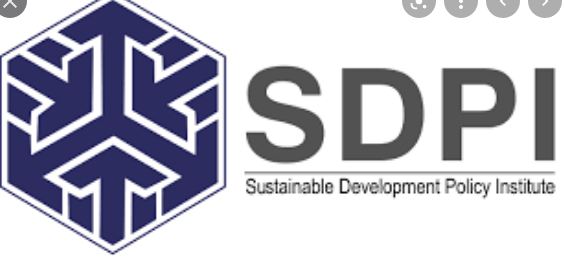ISLAMABAD, SEPT 22 (DNA) – Ahead of the UN Food Systems Summit which kicks of today (23rd September), experts are calling for policy reforms to protect the food and livelihood security of those hardest hit by Covid-19 – women and workers in informal economies. This includes jobs such as street sellers, market traders and domestic workers.
New research shows that Pakistan is facing numerous socioeconomic impacts of Covid-19, one of the most important of which is on the food security of workers and smaller food producers. “There is a need for balancing government interventions through fiscal stimulus across small, medium, and large producers, so that food systems work for everyone irrespective of their income level,” said Dr Abid Qaiyum Suleri, Executive Director of the Sustainable Development Policy Institute (SDPI).
World over, declining incomes caused by lockdown measures, disruptions to the informal economy, and the collapse of small- and medium-sized enterprises (SMEs) are having a direct impact on food security and livelihoods. According to the World Bank’s recent Pakistan Development Update (World Bank 2021), 20.7 million people, or 37 per cent of the country’s labour force, were laid off between June and December 2020. Extended lockdowns have disrupted food supply chains, leading to hoarding and artificial food inflation. Many SMEs, who are a crucial source of employment, urgently need support to stay in business, the report adds.
SMEs play a vital role in Pakistan’s economy; they contribute around 40 per cent to GDP, 40 per cent to exports, 80 per cent to non-agricultural employment, and 35 per cent in total value additions. SDPI is providing research based evidences to the Government of Pakistan to support the design of support packages for SMEs and has prepared a data driven food security management plan to cope with the negative effects of Covid-19 on livelihoods, food security, and food supply chains.
The Prime Minister has kindly approved use of SDPI’s Centralised Data Visualisation Facility for Food Supply Chains -Food Security Dashboard. Information collection for the dashboard has been provided a legislative cover through recently promulgated Food Security Flow and Information Ordinance. This information would support the analyses and monitors food supplies, demands, and price fluctuations to support policymakers in curbing food hoarding, removing bottlenecks in logistics, and controlling food prices through smooth supplies. It provides the government with much-needed information about supply, demand, and price fluctuations at district, provincial, and national levels. This dashboard is already institutionalized at Ministry of National Food Security and Research.
Dr Suleri said that Covid-19 provides an opportunity to develop new policies for ensuring food security and economic recovery, which are inclusive in relation to job creation and aligned with the agenda of the Sustainable Development Goals (SDGs). Through the production of consolidated research on the effectiveness of government stimulus plans and strengthening the decision-making through robust evidence base, there is an opportunity to join up actions designed to support economic recovery from the pandemic with attempts to build more secure sustainable food systems.
The new research has been conducted as part of the COVID19 Responses for Equity (CORE) programme supported by IDRC, which brings together findings from across sub-Saharan Africa, Latin America and South Asia on lessons from Covid-19 on food security and livelihoods. It shows that among rural and urban settings, women and informal workers were the most vulnerable to food shortages and undernutrition and more inclusive and responsive social protection measures are urgently required to ensure efforts to mitigate the challenges of Covid-19 reach those most impacted. The evidence suggests that irrespective of country and urban or rural settings, it will be vital to address the unequal impacts to women – who are more likely to work in the informal economy, have lower incomes, and bear the extra burden of reproductive and domestic work – and support the key role of women in building resilience in their communities .












